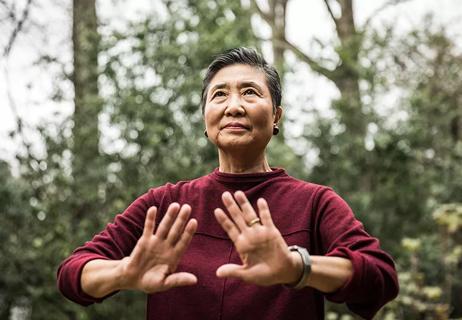How caregivers struggle with a similar issue

Advertisement
Cleveland Clinic is a non-profit academic medical center. Advertising on our site helps support our mission. We do not endorse non-Cleveland Clinic products or services. Policy
I had a recent mentoring session with a former student of mine, Dr. Carolyn Fisher. Sipping our coffee and talking shop, our conversation turned very authentic when we both admitted to struggling with a similar issue: loneliness.
Later that week, Cynthia Kubu, PhD, shared an article on loneliness with our engagement team that was written by our past surgeon general. I realized that this feeling is common and something we should explore.
In this article, Dr. Vivek Murthy shares that up to 50 percent of Americans feel lonely, particularly those in leadership roles.
We live in a world with instant, social connection and information at our fingertips, yet experience extreme loneliness. We sit in interdisciplinary settings throughout our hospital, where we arguably spend more time with our work team than our own families, yet rarely interact on a personal supportive level.
Loneliness comes with physical, psychological and economic burdens that are important to address, yet the solutions are not as simple as happy hours and team-building exercises. They have to be deeper, more authentic.
The antidote to loneliness is developing relationships with people who share common values and eventually to feel supported by friends and colleagues.
Building relationships takes time and effort and it’s risky. People are flawed and isolation is easy, but each step towards finding your work support system is worth it.
I invite you to say, “Yes!” the next time someone stops in your office to talk, or to be the engager and seek out a connection. I also encourage you to act bravely and be the inviter the next time you see someone in need of community.
Advertisement
It’s worth the risk and effort and will improve our physical, mental and economic health.
Advertisement
Advertisement

Pulmonologist-scientist is awarded a $2 million grant from the NIH

Cardiologists offer professionals guidance for better sleep

Reduce stress by adopting mindfulness as a way of life

A Q&A with sports medicine physician Dominic King, DO

Reflections on providing all patient care with the same respect

3 Women's Professional Staff Association members field this question

Benevolence and nonmaleficence in self-disclosure

It's time to take care of YOU